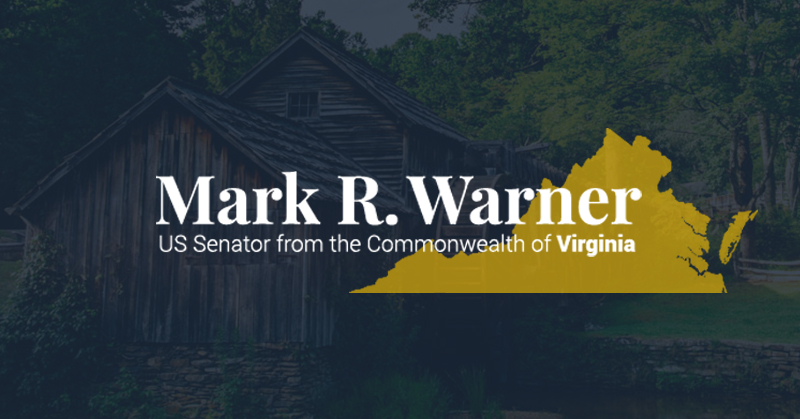Source: United States Senator for Commonwealth of Virginia Mark R Warner
WASHINGTON – U.S. Sen. Mark R. Warner (D-VA), a member of the Senate Banking Committee, released the following statement on the Department of Labor’s proposed rule enabling retirement plans governed by the Employee Retirement Income Security Act (ERISA) to consider environmental, social, and governance (ESG) factors in their decision-making:
“I am glad that the Employee Benefits Security Administration has moved to reverse one of the Trump Administration’s efforts to ignore the calamitous effects of climate change, including its associated financial risks, by proposing a rule enabling retirement plans to consider Environmental, Social, and Governance (ESG) considerations in investment decisions. Companies do not operate in a vacuum and investment fiduciaries should have the ability to consider sustainability of the broader community without running afoul of their fiduciary responsibilities to shareholders. With the publication of this proposed rule, the Biden Administration has taken a step towards protecting the long-term financial security of pensioners and workers across the country.
“This proposed rule also highlights the continued importance of the Securities and Exchange Commission (SEC) effort to establish clear ESG disclosure requirements for publicly traded companies. Investors increasingly clamor for consistent ESG reporting because they understand companies that invest in their workers, minimize harmful environmental impacts, and enact strong worker safety measures, also tend to perform better in the long-run.”
Under the proposed rule, retirement plan administrators will continue to act in the sole interest of the plan’s participants but will now be able to more freely include ESG factors, including in their initial analysis of investment options. Sen. Warner has previously called on Congress to amend the Employee Retirement Income Security Act (ERISA) to require consideration of ESG factors as part of fiduciary duty. While this rule does not require consideration of ESG factors by plan managers, it grants critical flexibility to do so.
###
